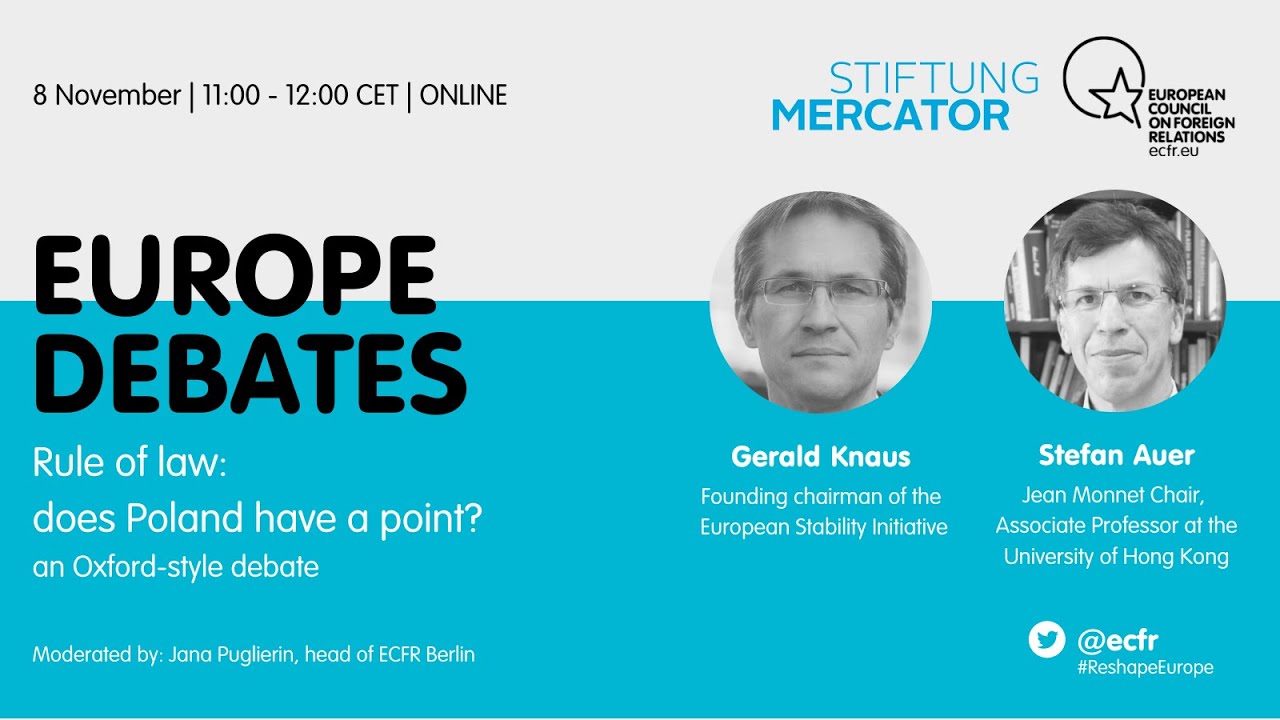Europe Debates | Rule of law: Does Poland have a point?
In Poland, as well as across the EU, we witness a battle between these two narratives. Depending on which of them prevails, EU countries and institutions may choose to react more or less firmly to the Polish challenge – with lasting consequences for the EU’s future shape
Guests
Stefan Auer, Jean Monnet Chair and Associate Professor at the University of Hong Kong
Gerald Knaus, founding chairman of the European Stability Initiative
Chaired by
Jana Puglierin, head of Berlin office and senior policy fellow, ECFR
In early October, Poland’s Constitutional Tribunal openly challenged the legal order of the European Union when ruling that the Polish constitution takes precedence over fundamental parts of EU law. Experts and politicians across Europe warned that this presented a major challenge to the EU. Yet, they differ in their assessment of why this is the case.
For some – including Poland’s Prime Minister, Mateusz Morawiecki – it is all about a delineation of competencies between member states and EU institutions. From their perspective, the power of Brussels has expanded beyond previously agreed limits. It is therefore about defending the sovereignty of member states against the EU’s overreach.
For others, these developments are so worrisome because they led to the elimination of an independent judiciary in one of the member states, thus threatening the erosion of the EU’s legal order more broadly. A country with a judiciary that is obedient to the government can no longer be considered a democracy, they argue, and that there should be no place for undemocratic countries in the EU. From this perspective, the ruling of the country’s Constitutional Tribunal is largely a smokescreen, aimed at diverting attention from the real problem; it is also a useful pretext for not complying with some of the rulings of the European Court of Justice that are most problematic for Poland’s Law and Justice (PiS) government.
In Poland, as well as across the EU, we witness a battle between these two narratives. Depending on which of them prevails, EU countries and institutions may choose to react more or less firmly to the Polish challenge – with lasting consequences for the EU’s future shape.
This event is part of ECFR’s Re:shape Global Europe project funded by Stiftung Mercator.

